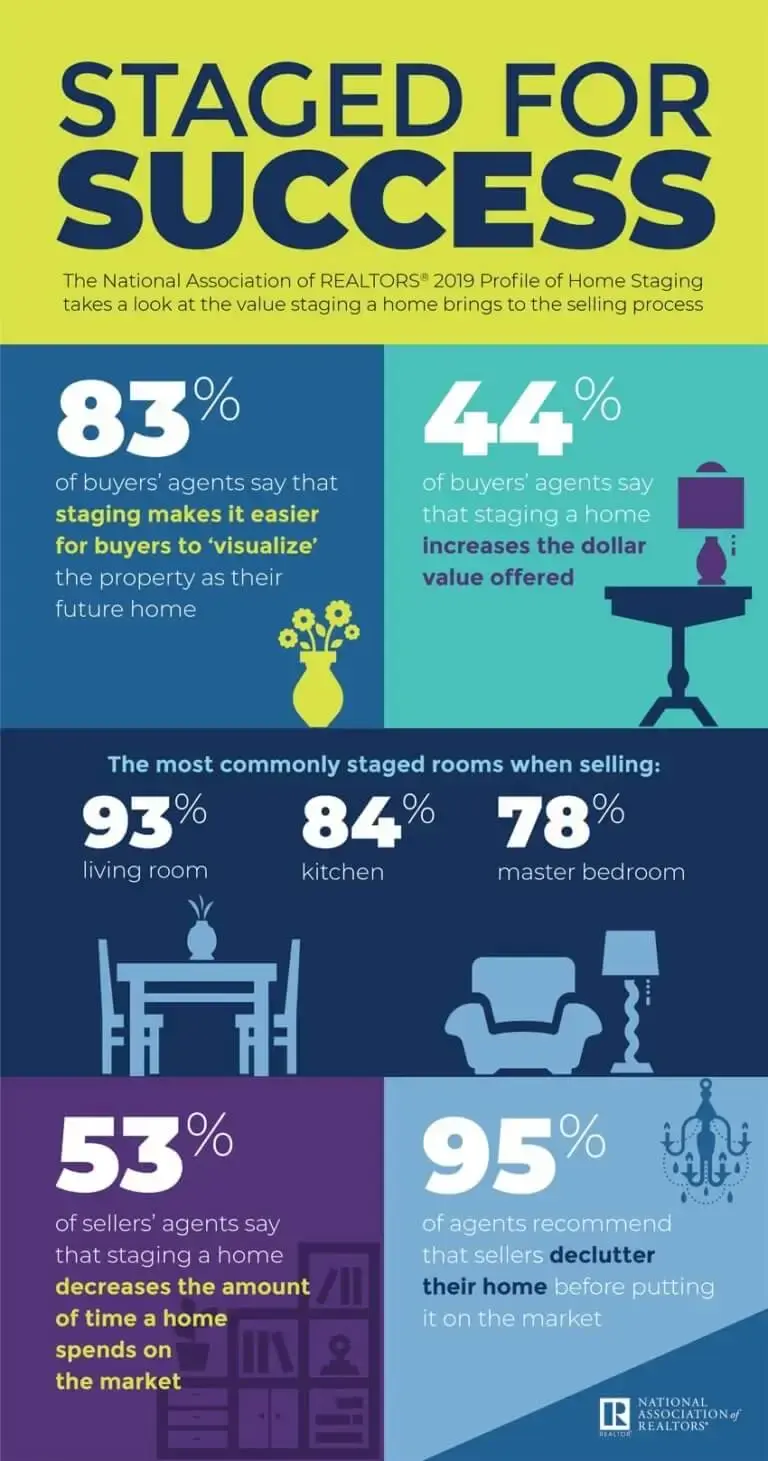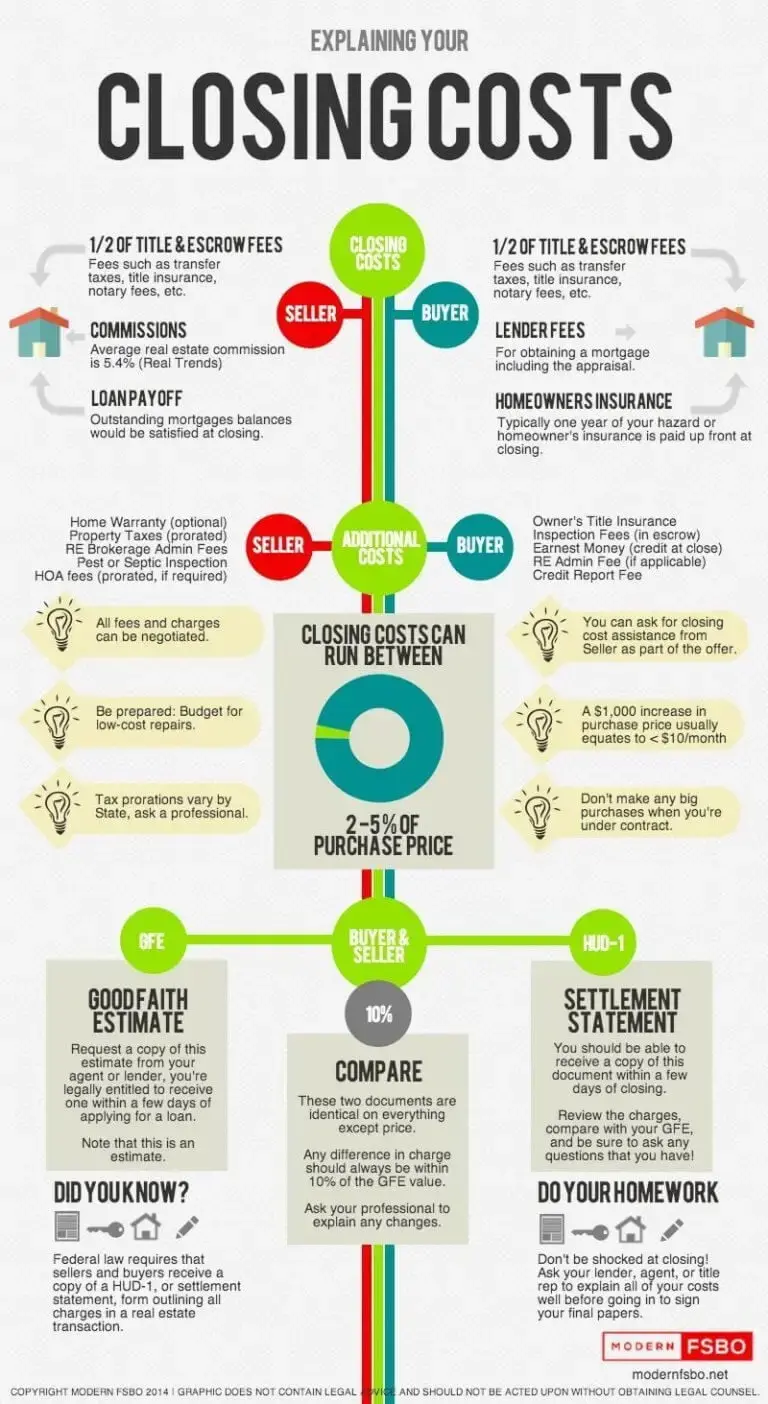Thinking about selling your home? When the time comes, you’ve got options.
For many homeowners, the selling process can feel overwhelming. Before you even get started, you must choose between several selling methods… and each has its own pros and cons.
When deciding how to sell your home, consider the time, effort, and money involved in each option. In some cases, the choice of selling method may depend on your home’s condition.
Every home seller’s circumstances are unique. But in most cases, homeowners may choose from three main options:
This guide explores these three home selling methods and details the pros and cons of each.
When you hire a real estate agent to sell your house, they are responsible for the work involved with listing, marketing, selling, and closing the sale of the home for you. In exchange, they receive a commission fee.
Typically, an agent’s commission is 6 percent of the home’s final sale price. That means if your home sells for $200,000, a 6 percent commission totals $12,000.
The home seller will have to pay half, if not all, of the commission depending on what is stated in your contract. Often, the seller’s agent and the buyer’s agent split the commission.
Keep in mind that this rate isn’t set in stone, and may vary depending on the local market. Commission rates aren’t set by law, so that means they may be negotiable.
In most cases, home sellers must sign an agreement stating that the property will be listed exclusively with an agent for a certain period of time. The market standard is six months.
Working with an agent represents a significant investment of time and money. That means you need to do your research and find a real estate agent that will work for you because unfortunately, a bad one can cost you in money and stress!

When you are thinking about selling your home, real estate agents provide a range of services. Most will work with you to determine a realistic listing price for your home. To determine this, an agent researches comparable sales in your area, local market values, the condition of your home, and more.
An agent may help prepare the home for sale. They may suggest repairs and upgrades and use their professional contacts to find reputable contractors.
They may also stage your home. According to a study completed by the National Association of REALTORS®, staging the interior and exterior of your home may lead to a faster sale at a higher selling price.

Usually, the home seller must pay for staging expenses upfront. Sometimes, these costs can be taken out of the price of the sale as a fee.
A real estate agent will list and market your home. A professional agent has access to the Multiple Listing Service or MLS, an online tool that helps get maximum exposure for your property. Brokers and realtors use the MLS to share information on the properties they represent.
When a potential buyer shows interest in your home, an agent will organize showings. Some will also facilitate open houses.
Real estate agents are charged with the negotiation process, helping you get the best price. They will also complete the closing paperwork.
Like most options in life, work with a real estate agent has its pros and cons. The advantages of working with a real estate agent include local market knowledge.
They’ll understand home values in your area, so you can typically list your home at a more accurate price.
Agents may also have local connections to help find potential buyers. This network, as well as access to the MLS and other professional marketing tools, means better exposure for your home.
An agent handles closing paperwork, ensuring rules and regulations are followed. They’re charged with looking out for your best interests and providing expert advice and assistance throughout the process.
Deciding to list with an agent also comes with some cons. First on the list: costs associated with commission and fees. While 6 percent of your home’s selling price may not seem like much, it adds up.
Working with an agent often means a slow selling process. From start to finish, the home sale often takes from three to 12 months, depending on market conditions.

While you’re waiting around for your home to sell, you’ll still have to pay your bills. The mortgage, insurance, and utilities are still going to be due during the time your home is on the market.
You’ll also have to factor in the inconvenience of scheduling your life around showings and stagings. Imagine keeping your home in show-ready condition — or even in staged condition, with your belongings in storage — for months on end.
For homeowners with kids, pets, jobs, and other responsibilities, this adds another (time-consuming) layer of stress to the process.
Finally, you have to worry about a buyer backing out or financing falling through. Going through months of waiting only to have a sale fall through and have to start over is extremely frustrating, and a waste of time and money.
If you have time to wait around for your home to sell, or your first concern is receiving top of market value for your home, consider working with an agent.
However, you’ll lose a considerable chunk of the sale price to the agent’s commission.
Working with an agent means you have to be okay with losing money in exchange for doing less work. If you’re thinking of selling your home and you want a fast home sale and would prefer to avoid the costs of fees and commission, this method may not be the best fit for you.
As more home sellers use the Internet for marketing and listing their properties, For Sale by Owner or FSBO has become more popular.
A FSBO sale requires you to do all the work of selling the home on your own. However, you don’t have to pay anyone a commission when the sale is over.
This method is great for organized sellers with some extra time.
First, set a listing price. This important step requires some research. Fortunately, online tools can help, but there’s no perfect algorithm for determining the right price.
Use comparable sales in your area to get an idea of an appropriate price range. Setting the right price is key, as a well-priced home will sell faster.
Set the price too high, and you’ll end up lowering it later, which can turn off potential buyers even more.
Take necessary repairs into account when determining your listing price. You may need to hire an appraiser to come up with an accurate representation of your home’s market value.

Next, prepare your house for sale. A deep clean, staging, and attention to curb appeal are key.
Consider which repairs are necessary before putting your home on the market. Does it make sense to invest in upgrades, or is it worth the time and cost?
Now it’s time to market your home. In today’s technologically driven world, that means making use of online listing services and social media sites.
Fortunately, many listing sites are free. Just make sure each listing contains detailed data on the home, as well as high-quality real estate photos.
You should also look into traditional marketing methods. These may include for sale signs and flyers.
A FSBO sale will require you to show the home yourself, which can be awkward when you’re the owner. You may consider holding an open house, as well.
In either case, put safety first. Verify agents’ and potential buyers’ identities by checking driver’s license numbers. Many FSBO sellers like to have a friend or family member present during the home tour.
When a house hunter is interested, you’ll have to negotiate offers. It’s OK to counter-offer.
It’s also OK to ignore low-ball or non-serious offers. Be prepared to go back and forth with buyers before settling on a price.
Once you’ve received an acceptable offer, it’s time to complete the legal paperwork. Required forms and procedures vary, so check your state’s regulations.
Federal laws may also apply. Remember: The Fair Housing Act prohibits discrimination, so don’t run afoul of this law, which covers most housing sales.
When the time comes to close the sale, seek professional help. For instance, you’ll work with a title company or settling agent to transfer titles and mortgages.
Fees for these services are generally considered closing costs and may be paid by the buyer or the seller.

First, the good news: FSBO sales save you money. You’ll avoid paying commission to a seller’s agent. Plus, many online marketing tools are free.
You’ll also have more control over the selling process. However, FSBO has downfalls, too.
A do-it-yourself sale involves a lot (a LOT) of work on your part. FSBO homes tend to sell even slower than those sold with the help of an agent, so expect the process to take months.
Though you’ll save some money, there are costs associated with FSBO. For instance, you’ll still need to hire professional help to close the transaction.
You may also have to pay the buyer’s agent’s commission, usually 3 percent of the home’s selling price.
A FSBO sale is best for those who are in no hurry to sell their house. It’s also best for homeowners who are comfortable with marketing, negotiations, and paperwork.
FSBO may be a good choice for those who prioritize saving on fees. However, it’s not for people who don’t have time to devote to the home selling process, or the skills to do all the work. Those who dislike hassle should probably avoid this method.
Across the country, the practice of selling to a cash buyer is growing more accessible and more popular.
Cash buyers are real estate investors who will resell your property, often after completing renovations.
There are two main types of cash buyers, “iBuyers” and in-person buyers.
An Internet or instant buyer — a.k.a. an iBuyer — offers a fast, convenient option for those who wish to sell their home quickly.
They’re not licensed real estate agents; rather, iBuyers are individuals or entities that purchase properties sight-unseen.
In most cases, an iBuyer will ask for photos and information about your home. They’ll review the information, then provide an initial offer.
If you’re interested, the iBuyer will send a home inspector to tour your property. In almost every case, the iBuyer lowers their offer after the inspector’s visit.

If you agree to the transaction, be prepared to pay very high commissions and/or closing costs.
In many cases, iBuyers charge a “service fee” that totals anywhere from 6.2 to 15 percent of the home’s sale price.
This type of buyer usually won’t purchase homes that need major repairs, have mold, or been damaged by a natural disaster.
Often, they only purchase homes that fall within a certain age and price range. Each iBuyer is different, so be sure you understand their policies before you commit to a sale.
Unfortunately, some cash buyers seem too good to be true… because they are. Look out for these red flags:
If you spot these warning signs, walk away.
In contrast, a legitimate buyer will visit and inspect your property in-person before making an offer. They’ll never ask you to pay money; instead, they’ll offer you cash to purchase the home upfront.
Valid companies will have professional staff and use formal contracts. They’ll have a good reputation, with positive client reviews.
A cash sale offers many advantages. You’ll enjoy a much faster home sale, usually within weeks.
That means you’ll save on mortgage, insurance, utilities, and other monthly payments that you’d otherwise continue making while your house lingers on the market.
With a legitimate cash buyer (not iBuyers), you can sell as-is. You won’t have to shell out thousands of dollars to repair, upgrade, or stage your home.
In fact, you won’t have to list or market your property at all, saving both time and money.
Another thing not to worry about? Closing and paperwork. A reputable cash buyer will have a professional staff that handles these complicated transactions. Expect a convenient process with little work needed on your part.
On the “con” side, there are many cash-buying scams out there. Be sure to ask the right questions and do your homework before agreeing to a deal, especially if warning signs exist.
Cash sales may result in a lower price than market value. However, take into account that you’ll save by not paying real estate agent commissions or costs associated with repairs, upgrades, and staging.

Cash buyers offer an ideal option for homeowners who want a fast, easy sale. For instance, cash sales are a good option for those experiencing issues such as divorce or financial trouble, or those who’ve inherited a home that they don’t wish to maintain.
Cash buyers offer an alternative to foreclosure. A cash sale can help homeowners avoid the foreclosure process and save their credit scores.
It’s also a perfect choice for those with homes that need repairs or upgrades. With a cash offer, you don’t have to come up with the funds to pay for those repairs and fixes before putting your house on the market.
Are you considering selling your home and you’re still not sure which option is right for you?
Every homeowner’s situation is different, and there’s no cookie-cutter, one-size-fits-all option. That’s why HomeGo works with sellers to find a solution that works for them.
And if your home isn’t the right fit — for instance, if we think you’d do better putting it on the market — we’ll tell you.
HomeGo combines the benefits of working with a real estate agent and the speedy convenience of selling to a cash buyer. Plus, the HomeGo process is simple, fast, and convenient.
First, a HomeGo agent will meet you at your home for a walk-through, where they’ll assess your home and your needs. Then, you’ll receive an on-the-spot offer that won’t change later.
Your home sale can close in as little as 7 days. You don’t have to worry about a buyer backing out due to financial considerations.
It’s easy to see that not all cash buyers are created equal. When you work with HomeGo, you work with our professional agents. All have local market expertise, so they can provide you with a more accurate valuation.
You won’t have to worry about paying commissions, fees, or closing costs, and your house can close in as little as 7 days.
But there’s no rush to move out. HomeGo works with your schedule while keeping your needs in mind.
HomeGo purchases a wide variety of properties, in a range of conditions. There’s no need to make any repairs or upgrades, we purchase properties in as-is condition. Sell with confidence and move with ease, with HomeGo.
Fill out the form, and we will be in touch shortly.